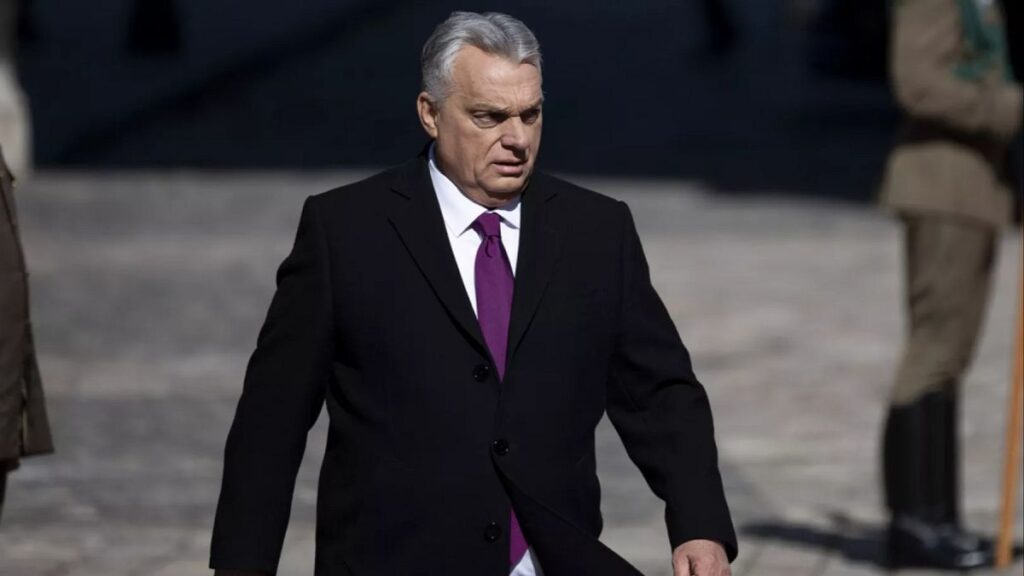EU ministers meeting for a General Affairs Council in Brussels have begun a hearing on rule of law in Hungary under the framework of the EU’s Article 7 process, as patience wears thin over recent legal initiatives in Budapest.
Viktor Orbán’s government’s self-styled “spring clean” includes a draft transparency law, targeting foreign-funded media and NGOs, and the ban on the Budapest Pride, which are among key concerns that set to be raised in the hearing.
Ahead of the meeting, 17 member states published a joint declaration denouncing the ban on Budapest’s Pride march, claiming it violates EU law.
“We are highly alarmed by these developments which run contrary to the fundamental values and human dignity, freedom, equality, and respect for human rights, as laid down in Article 2 of the Treaty of the European Union,” the declaration said.
The letter recalled that new Hungarian legislation allows fines to be imposed on participants and organisers of the Pride event and will also allow for the identification of participants with AI smart camera systems.
Seventeen countries demand Pride march ban reversal
“We call upon Hungary to revise these measures, to ensure the human rights and fundamental freedoms of all its citizens are respected and protected, thus complying with its international obligations,” it read.
The declaration was signed by Austria, Belgium, Czechia, Denmark, Estonia, Finland, France, Germany, Ireland, Latvia, Lithuania, Luxembourg, the Netherlands, Portugal, Slovenia, Sweden and Spain. The signatories also called on the European Commission to make full use of its rule of law toolbox if Hungary does not revise the law.
Hungary’s EU minister János Bóka rejected the criticism on arriving at the meeting.
“There is no such thing in Hungary as a Pride ban. At today’s hearing, I will explain to my colleagues the constitutional and legal framework. I hope that after this discussion, my colleagues at the table will walk out with a more nuanced view of the Hungarian legislation,” Bóka said.
EU members losing patience with Hungary
The Article 7 process began in 2018 when the European Parliament called for Hungary to be sanctioned because of alleged rule of law violations, especially in the field of justice and media freedom. The Council has discussed the issue seven times subsequently, but has never taken the step of triggering the next stage in the Article 7 process, in which member states would be called on vote on sanctions.
Critics also fear a draft Hungarian bill titled “Transparency of Public Life”, which was tabled in the Budapest parliament on 13 May, would offer the Hungarian government sweeping powers to crack down on the press and critical voices in civil society.
The European Commission has asked Hungary to withdraw the bill, saying that if adopted, “it would constitute a serious breach of EU principles and law”, according to a Commission spokesperson.
Sweden’s EU minister voiced concerns about backsliding on the rule of law, transparency, and “a crackdown on civil society and LGBTI rights” as she entered the meeting.
“We have had seven years, seven hearings, and I will be very clear today that this cannot just continue unless we see a completely new attitude from the Hungarian side today, I think its time that we consider the next steps, as this is getting pointless to continue,” Sweden’s EU minister, Jessica Rosencrantz, told reporters.
“The first phase of the Article 7 process has now been ongoing for a relatively long time, so no one can accuse us of not being patient,” German EU minister Gunther Kirchbaum told reporters, adding “at a certain point we have to make up our minds about what is next”.
“I can tell you that my colleagues’ patience is disappearing day by day,” he said.
Hungary’s Bóka said that political hysteria surrounded the meeting but added that Hungary was ready for dialogue.
On Monday, an EU diplomat said that ministers will not call for the deployment of sanctions under Article 7 against Hungary on Tuesday because they lack the requisite majority.
Read the full article here

